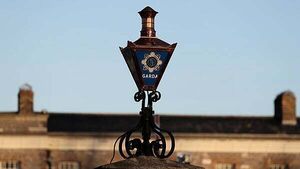Surge in number of prosecutions for brothel-keeping

Darragh Mc Donagh
There have been 50 prosecutions for brothel-keeping since the beginning of 2024 – more than were recorded in the previous four years combined, new figures have revealed.
Keeping a brothel or knowingly allowing a premises to be used as one is a criminal offence punishable by up to 10 years in prison on indictment.
Gardaí brought 34 prosecutions for the offence under Section 11 of the Criminal Law (Sexual Offences) Act 1993 last year, while another 16 prosecutions were commenced since the start of 2025.
They included the arrest of three Brazilian men in Dublin two weeks ago, who were charged with brothel-keeping and organised prostitution at a number of addresses across the country.
A separate prosecution saw Stelian Ciuciu, 32, from Brookdale Walk, Swords, sentenced to eight years in prison last July after pleading guilty to 20 charges, including brothel-keeping, organising prostitution, and money laundering.
In March, Brazilian Ilamar Rodrigues Ribeiro, 54, was jailed for nine years after pleading guilty to 19 sample counts, including using false instruments, brothel-keeping, and possession of the proceeds of crime.
Ribeiro had rented properties across rural Ireland under false pretences and used them as brothels, Dublin Circuit Criminal Court was told.
Figures published by Minister for Justice Jim O’Callaghan in response to a parliamentary question from Independent Ireland TD Ken O’Flynn show that the number of prosecutions for brothel-keeping has soared in recent years.
A total of 10 prosecutions were recorded in 2020, and another 15 were filed the following year. The total number dropped below 10 in both 2022 and 2023, before surging to 34 last year.
Mr O’Callaghan said the number of Garda staff assigned specifically to the investigation of prostitution, human trafficking and related crime has more than doubled from 11 to 24 in the past 10 years.
“It is generally recognised that prostitution is inherently exploitative of vulnerable persons, mainly women and girls, and that many people are forced into prostitution through trafficking, drug addiction, homelessness and poverty,” he said.
Mr O’Callaghan said the Third National Strategy on Domestic, Sexual and Gender-Based Violence aimed to reduce demand for prostitution, to raise awareness of the law around it, and to improve “exit pathways”.






